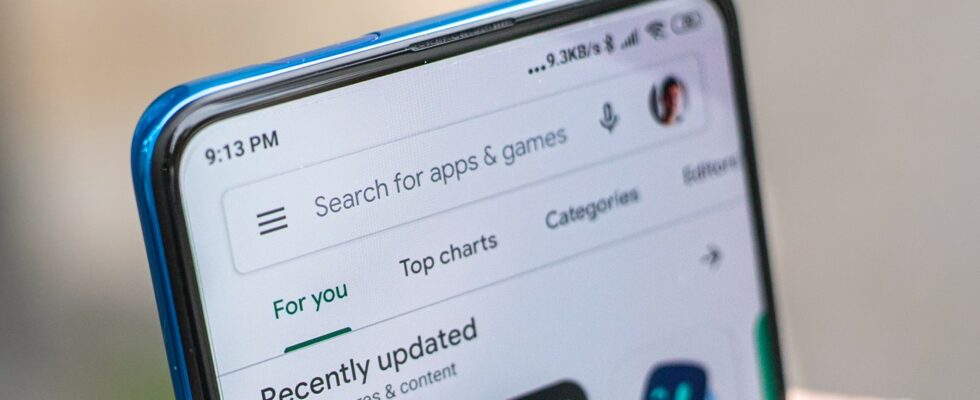The search engine imposes new rules regarding the use of applications downloaded outside of the Google Play Store. These limitations should protect users from hacking and bank fraud attempts.
Google is looking to tighten the screws on its Android operating system. If the Google Play Store is the royal route for downloading and installing third-party applications on your smartphone, Android has always allowed the sideloading technique, that is to say the possibility of installing applications from the web in .APK format , via a simple download link. This practice is obviously not without risks, since Google’s protection and security systems cannot analyze software and track down malware that may be found there. The search engine therefore decided to take the bull by the horns in order to make its system more secure.
A security program launched by Google in some countries
It was in October 2023 that Google launched a test program to analyze mobile application activity in real time. It has been deployed in a few countries such as India, Brazil, Thailand and Singapore, before a more global launch during this year 2024.
During these few weeks of analysis, Google indicates that it detected malicious activity in 515,000 applications, and warned users or simply blocked the installation of more than three million applications.
Building on its results, Google is today announcing a new initiative, launched for the moment only in Singapore. The objective for the search engine is to block applications downloaded outside the Google Play Store in the event of misuse of certain permissions given by the user.
Blocking software that abuses certain permissions
The permissions targeted by Google are linked to the automatic filling of the password or unique code sent by SMS by an online service as part of double authentication. Developers of malicious applications can use these APIs (or development interfaces) to access this sensitive information and then users’ banking or financial applications. Notifications and accessibility settings can also be used to retrieve sensitive information. Google further indicates that, according to its findings, 95% of applications that have abused its permissions are sideloaded software.
With its new program, Google can now detect abusive use of these programming interfaces, and remotely block the installation of applications downloaded outside the Play Store. A pop-up will appear on the screen to explain the reasons for the blockage. No control will allow overriding the blocking, in order to protect the user.
Google finally explains that it wants to deploy this new user protection system on a global scale, while recalling that the installation of applications outside the Play Store is not without risks for the confidentiality and security of personal data. So be vigilant if by chance you want to retrieve an application from the web in the coming months.
Android is an open ecosystem, a fact that many owners of smartphones running Google’s operating system may forget. Also, alternatives to the PlayStore exist, making it possible in particular to react to the abuse of dominant position of the Mountain View firm. Obviously, they are not encouraged by Google, which constantly praises the security of its application store.
Read more
Source : Bleeping Computer


1